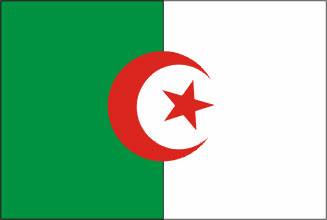Algeria is a country located in North Africa. It is the largest country on the continent and the 10th largest in the world. Algeria shares its borders with several other African nations, including Tunisia, Libya, Niger, Mali, Mauritania, Western Sahara, and Morocco. To the north, it has a Mediterranean coastline.
Here are some key facts about Algeria:
Capital and Largest City: The capital of Algeria is Algiers, which is also the largest city in the country.
Population: As of my last update in September 2021, Algeria had a population of over 43 million people.
Language: The official language of Algeria is Arabic, while Berber (Amazigh) is also recognized as a national language. French is widely spoken and used in government, business, and education.
History: Algeria has a rich history, with ancient civilizations such as the Berbers and Phoenicians influencing its culture. It was later ruled by various powers, including the Roman Empire, Vandals, Byzantines, and Arabs. Algeria was a French colony from the early 19th century until it gained independence in 1962 after a long and bloody war of independence.
Government: Algeria is a republic with a semi-presidential system. The President is both the head of state and the head of government.
Economy: Algeria possesses significant reserves of natural gas and oil, making hydrocarbons the backbone of its economy. Other important sectors include agriculture, mining, and manufacturing.
Religion: Islam is the predominant religion in Algeria. The country's legal system is based on Islamic law (Sharia) and French civil law.
Culture: Algeria has a diverse cultural heritage influenced by its historical interactions with various civilizations. Traditional music, dance, and art, as well as vibrant local festivals, are an integral part of the culture.
Landmarks: Algeria boasts several historical and natural landmarks, including the ancient Roman ruins at Djemila and Timgad, the Sahara Desert, the Kabylie Mountains, and the coastal city of Oran.
Challenges: Algeria has faced challenges related to economic diversification, youth unemployment, and political reforms. Social and economic issues led to protests in 2019, leading to changes in the government.
Please note that political, social, and economic situations can change over time, so it's essential to refer to more recent sources for the latest information on Algeria.

